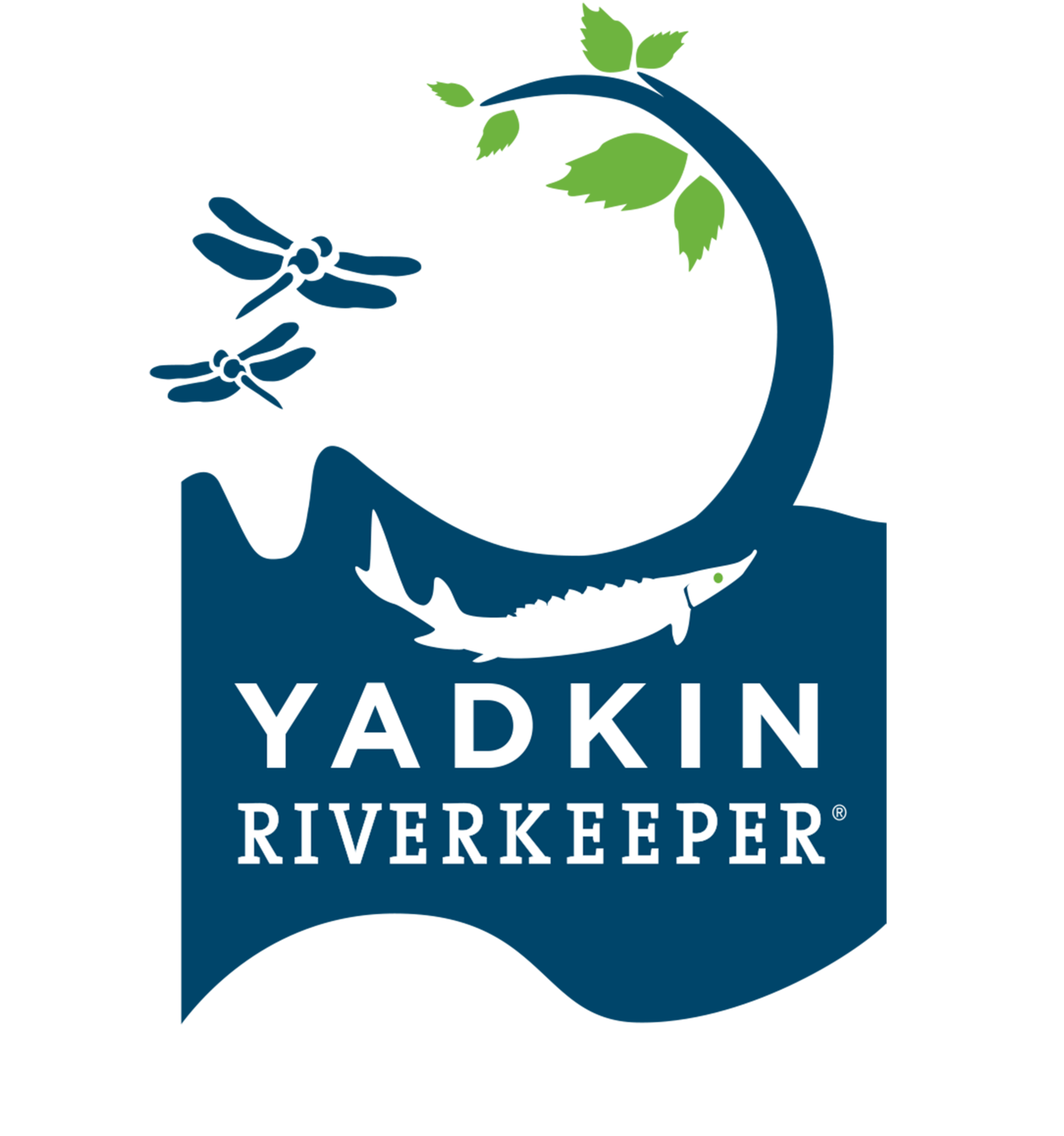By Nicole Eastman, Riverkeeper Assistant
Some of the Riverkeepers and speakers at the Triennial Review in Raleigh
On Earth Day, April 22, seven members of the Waterkeepers Carolina coalition presented oral comments regarding the Department of Environmental Quality’s (DEQ) Triennial Review of the state’s surface water quality standards. Nicole Eastman, Yadkin Riverkeeper’s (YRK) Riverkeeper assistant, presented comments on behalf of the organization to express our support for an E. coli standard in recreational waters and our concerns with the lack of regulation of other contaminants such as cyanotoxins.
Nicole presenting comments to advocate for stronger water quality protections
Every three years, the DEQ evaluates and recommends changes to North Carolina’s surface water quality standards. Their recommendations are shared publicly to allow for public comment. The state makes recommendations to the Environmental Management Commission (EMC), a group of 15 appointed members responsible for adopting rules to protect the state’s water and air quality. To effectively share our concerns with the lack of regulatory standards for several contaminants such as E. coli, cyanotoxins, PFAS, 1,4-dioxane, sediments, and plastics, each Riverkeeper organization focused their 3-minute comments on one or two specific issues.
This year, the only significant change the DEQ suggested was an update to a recreational standard for fecal bacteria in Class B waters, those we use for primary contact recreation like swimming. The proposed change would use E. coli bacteria as an indicator of fecal contamination in place of fecal coliform. YRK supports the use of E. coli for the recreation standard because the best available science shows that E. coli is a better indicator of gastrointestinal illness risk in surface waters. The Environmental Protection Agency has also recommended states use E. coli as an indicator organism since 1986.
Although YRK supports the use of E. coli as an indicator of gastrointestinal illness risk in Class B, primary recreation waters, we recommended in the oral comments to apply this standard to Class C, secondary recreation waters too. The state classifications of waters do not determine the public’s use of these waters. For example, you may see people swimming or wading at many of YRK’s Swim Guide sites on any given summer day such as Bull Hole and Donnaha. In fact, 20 of YRK’s Swim Guide sampling locations, all of the river sites, are considered Class C waters. Therefore, it is important to establish a recreational use criteria for E. coli for Class B and Class C waters.
YRK’s oral comment also focused on adopting recreational standards for the cyanotoxins, microcystins and cylindrospermopsin based on the EPA’s 2019 recommendations. These standards would provide state agencies the guidance for issuing public health notices to protect people and pets from negative health impacts. The violation of the cyanotoxin criteria could also trigger much-needed investigations into nutrient pollution sources. With the lack of nutrient criteria for the state, these standards are essential in identifying harmful algal blooms and protecting water users.
The state is receiving written comments until May 2. YRK will be advocating for an E. coli standard that applies to all recreational waters, the establishment of criteria for cyanotoxins, PFAS, and 1,4-dioxane, and an update to the current turbidity permit that allows for exemptions granted to developers whole use a Best Management Practice at a construction site. If you are interested in advocating for improved standards to better protect our right to clean water in North Carolina, you can submit comments to SWTriRevComments2025@deq.nc.gov. If you have any questions, please contact nicole@yadkinriverkeeper.org.


